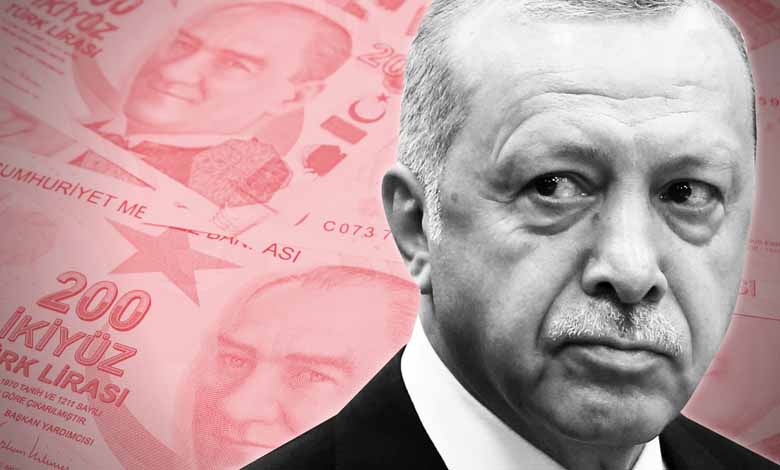After the interest rates cut.. Turkey’s economy heads for new crisis

The Central Bank of Turkey lowered its interest rates for the third consecutive month by 1.5 percentage points to 10.5% on Thursday, despite rising inflation that led to rising food and energy costs across the country.
Largest decrease
The Associated Press (AP) reported that the rate cut yesterday, Thursday, represents the largest decline in interest rates this year, after banks cut interest rates by one percentage point in both August and September. President Recep Tayyip Erdogan ordered the central bank to cut borrowing rates repeatedly last year despite runaway inflation, which led to a currency crisis and a devaluation of the lira.
The Turkish government maintains the unconventional belief that high borrowing costs lead to higher prices, which is contrary to conventional economic theory, the news agency said.
Before August, the bank held the interest rate at 14% for eight months and temporarily halted a previous round of cuts, AP said.
The Turkish Central Bank explained in a statement its latest decision, in which it confirmed that “it is extremely important that the financial conditions remain supportive to maintain the growth momentum in industrial production and the positive orientation of employment.” The statement indicated that the Bank will take a “similar step” next November, which will see the interest rate reduced to one box (less than 10%).
Major crisis
According to the US agency, the annual inflation rate in Turkey reached 83.45% in September, registering its highest level in 24 years, with consumer prices rising by 3.08% from the previous month, according to the Turkish Institute of Statistics. The runaway inflation causes a gap in the income of Turks, as the cost of basic commodities is rising and harms families that are already suffering from high energy, food and housing costs.
The news agency added that such decisions would worsen the Turkish economic crisis and raise inflation rates even more, which could reach record levels due to the Turkish government’s intention to raise wages again before next year’s presidential elections, and fears of losing the elections.
Analysts say the influence and power of the AKP and the Turkish government’s wrong choice are behind the high prevalence of corruption and poor economic decision-making.












